Evaluation of Subsidy Programmes
This research group develops the scientific foundations for causal impact analysis of policy interventions within the European Union, with a particular focus on place-based policies. Despite significant public spending on such programmes in many developed economies, there is limited evidence on their effectiveness and efficiency.
Our approach integrates three key dimensions: first, the systematic use of administrative funding data and legislative documents; second, the application of advanced methods in policy impact evaluation; and third, the exchange of knowledge among researchers, policymakers, public administration, and civil society. Without this integration, research risks becoming either overly abstract or disconnected from the institutional and legal realities of policy implementation. By combining these elements, we create robust research designs grounded in real data and legal frameworks.
This approach allows us to generate evidence-based insights that contribute to better informed decision-making—not only in politics but also within civil society. The findings of our work have contributed to the revision and improvement of existing subsidy programmes. The research group is closely embedded in the activities of the Centre for Evidence-based Policy Advice (CEP), ensuring both scientific rigor and practical relevance. In doing so, we embody the leitmotif of the Leibniz Association: theoria cum praxi.
Research Cluster
Economic Dynamics and StabilityYour contact

- Department Centre for Evidence-based Policy Advice
EXTERNAL FUNDING
09.2019 ‐ 09.2022
Establishing Evidence-based Evaluation Methods for Subsidy Programmes in Germany (EVA-KULT)
The project aims at expanding the Centre for Evidence-based Policy Advice at the Halle Institute for Economic Research (IWH-CEP).
01.2018 ‐ 12.2020
Networked growth - Innovative Saxony-Anhalt through digital business models (Competence Center 4.0)
01.2017 ‐ 12.2018
Political Participation in Eastern Germany
12.2015 ‐ 11.2018
Socio-economic Effects of Research on Innovative Approaches for POC Diagnostics
Part of the EXASENS project. Coordinated by the Leibniz Institute of Photonic Technology (IPHT) in Jena, nine Leibniz institutes are working together on researching point-of-care (POC) technology for the prediction and diagnosis of chronic inflammatory respiratory diseases. See press release.
02.2017 ‐ 02.2018
The Importance of Non-University Research Institutions for the Development of Firms and Regions (Be_For_Reg-Projekt)
01.2015 ‐ 12.2016
Evaluation of the "Joint Task 'Improving the Regional Economic Structure'" in the Federal State of Saxony-Anhalt
Refereed Publications
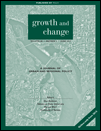
Actors and Interactions – Identifying the Role of Industrial Clusters for Regional Production and Knowledge Generation Activities
in: Growth and Change, No. 2, 2014
Abstract
This paper contributes to the empirical literature on systematic methodologies for the identification of industrial clusters. It combines a measure of spatial concentration, qualitative input–output analysis, and a knowledge interaction matrix to identify the production and knowledge generation activities of industrial clusters in the Federal State of Saxony in Germany. It describes the spatial allocation of the industrial clusters, identifies potentials for value chain industry clusters, and relates the production activities to the activities of knowledge generation in Saxony. It finds only a small overlap in the production activities of industrial clusters and general knowledge generation activities in the region, mainly driven by the high-tech industrial cluster in the semiconductor industry. Furthermore, the approach makes clear that a sole focus on production activities for industrial cluster analysis limits the identification of innovative actors.
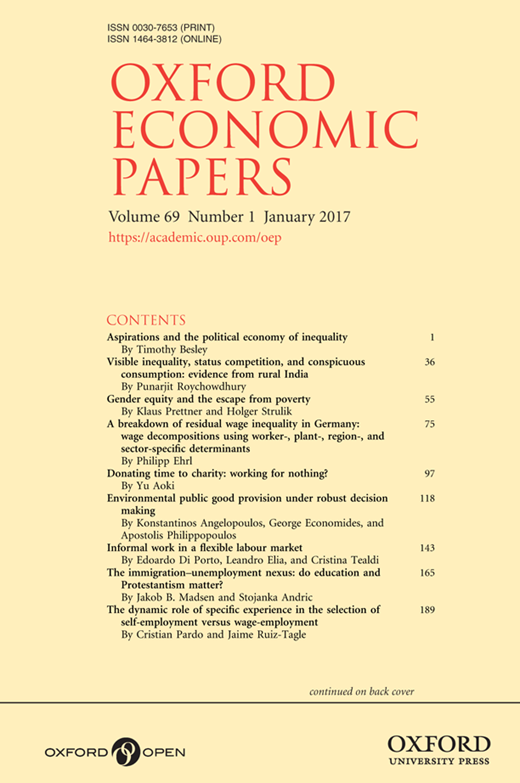
Non-union Worker Representation, Foreign Owners, and the Performance of Establishments
in: Oxford Economic Papers, No. 1, 2014
Abstract
Using German establishment data, this study provides the first econometric analysis on the interaction of establishment-level codetermination and foreign owners. Works councils are associated with higher productivity in domestic-owned establishments while they are associated with lower productivity in foreign-owned establishments. Our results conform to the notion that foreign ownership can involve strong tensions with the institutional patterns of the host country.
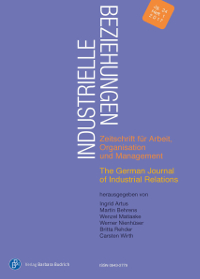
Adjustments in the Use of Temporary Agency before and during the 2008/2009 Economic Crisis
in: Industrielle Beziehungen, No. 1, 2014
Abstract
Der Anstieg in der Leiharbeitsnutzung in Deutschland bis zur Wirtschaftskrise der Jahre 2008 und 2009 war geprägt durch die verstärkte Nutzung in größeren Industriebetrieben und vollzog sich in erster Linie entlang der intensive margin, also durch eine erhöhte Leiharbeitsintensität in den Nutzerbetrieben. Diese Vorgänge können mit transaktionskostentheoretischen Argumenten und gestiegenem internationalen Wettbewerbsdruck erklärt werden, und sie deuten auf eine gestiegene Produktivität in den Nutzerbetrieben hin. Der drastische Rückgang in der Leiharbeitsnutzung während der Krise betraf vor allem Exporteure und größere Industriebetriebe und vollzog sich primär entlang der extensive margin. Die Beschäftigungschancen im Leiharbeitssektor hingen in besonders starkem Maße von der internationalen Nachfrage nach deutschen Industriegütern ab.
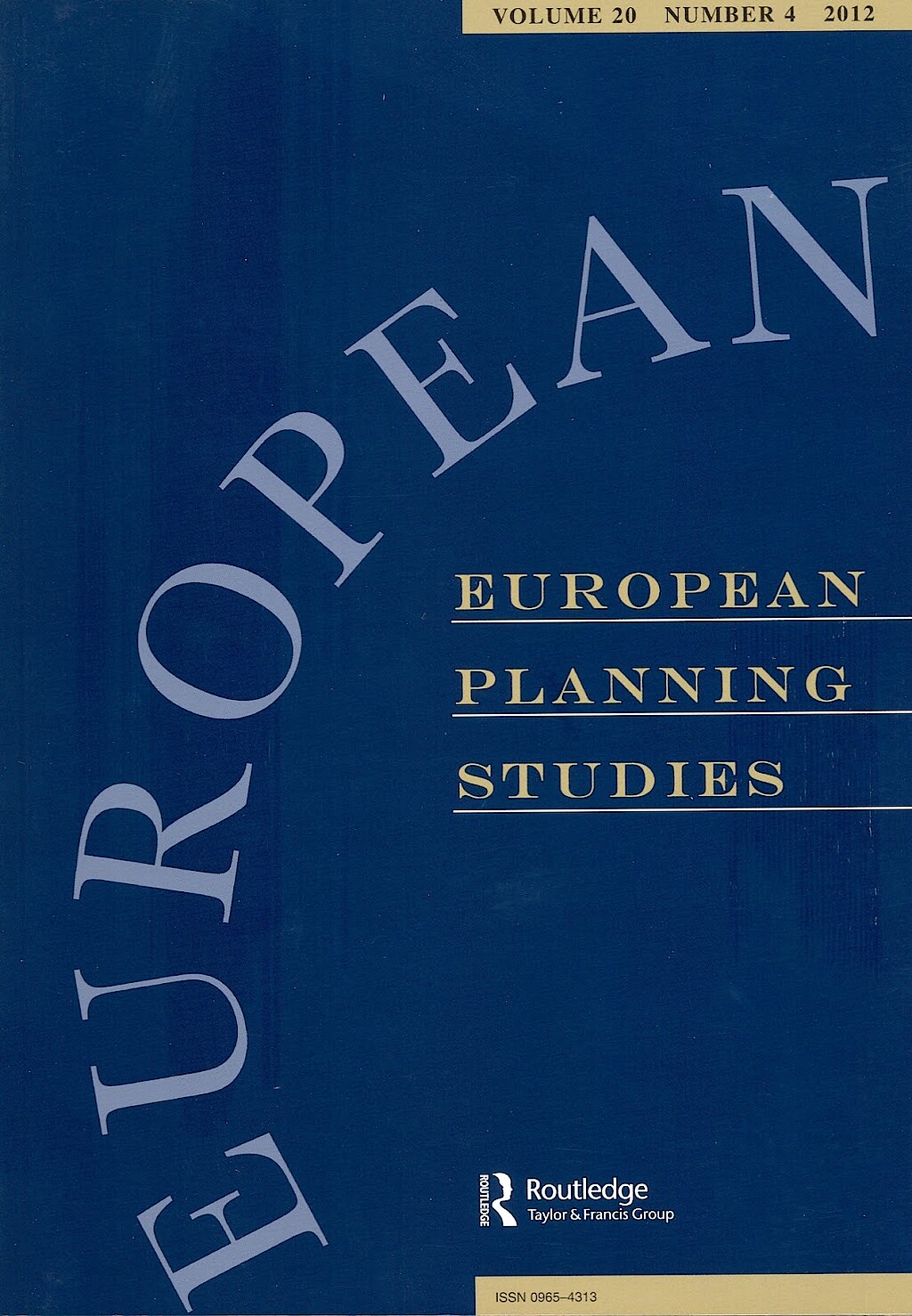
Guest Editorial: Which Regions Benefit from Emerging Industries? Guest Editorial
in: European Planning Studies, No. 11, 2013
read publication
The Impact of R&D Collaboration Networks on the Performance of Firms and Regions: A Meta-Analysis of the Evidence
in: International Journal of Networking and Virtual Organisations, No. 4, 2013
Abstract
Wissensintensive Interaktionen sind mit einer Reihe von Vor- und Nachteilen für die beteiligten Akteure verbunden. Deshalb hat sich ein Literaturstrang entwickelt, welcher der Fragestellung nachgeht, wie sich FuE-Kooperationen auf die Leistungsfähigkeit von Firmen und Regionen auswirken. Diese Studien kommen zu unterschiedlichen Ergebnissen. Das Papier versucht die verschiedenen Ergebnisse der Literatur zusammenzufassen. Ein weiteres Ziel ist es, die in der Literatur verwendeten Methoden zur Bearbeitung der Fragestellung kritisch zu diskutieren. Zudem geht das Papier der Frage nach, inwiefern die in der Literatur verwendeten Methoden und Ansätze die Ergebnisse der Studien beeinflussen. Zur Bearbeitung dieser Fragestellungen wird eine Metaanalyse der relevanten Literatur durchgeführt. Dabei wird gezeigt, dass FuE-Kooperationen einen positiven Effekt auf die Leistungsfähigkeit von Firmen und Regionen haben. Zudem gibt es starke Evidenz dafür, dass die verwendeten Methoden und Ansätze die Ergebnisse der Studien beeinflussen.
Working Papers
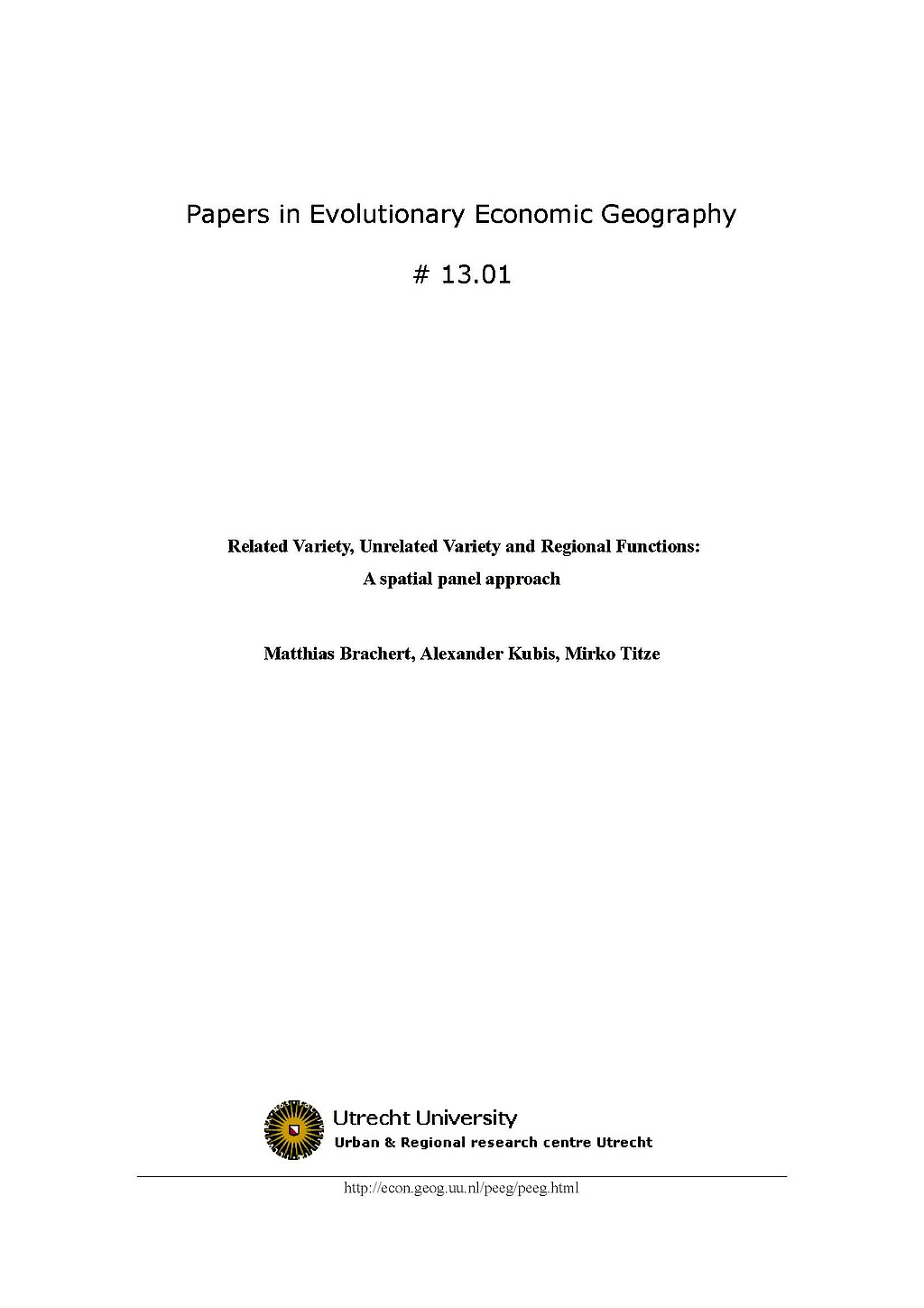
Related Variety, Unrelated Variety and Regional Functions: A spatial panel approach
in: Papers in Evolutionary Economic Geography, 2013
Abstract
The paper presents estimates for the impact of related variety, unrelated variety and the functions a region performs in the production process on regional employment growth in Germany. We argue that regions benefit from the existence of related activities that facilitate economic development. Thereby the sole reliance of the related and unrelated variety concept on standard industrial classifications (SIC) remains debatable. We offer estimations for establishing that conceptual progress can be made when the focus of analysis goes beyond solely considering industries. We develop an industry-function based approach of related and unrelated variety and test our hypothesis by the help of spatial panel approach. Our findings suggest that related variety as same as unrelated variety facilitate regional employment growth in Germany. However, the drivers behind these effects do differ. While the positive effect of related variety is driven by high degrees of relatedness in the regional “R&D” and “White-Collar”-functions, the effects of unrelated variety are spurred by “Blue Collar”-functions in this period.













